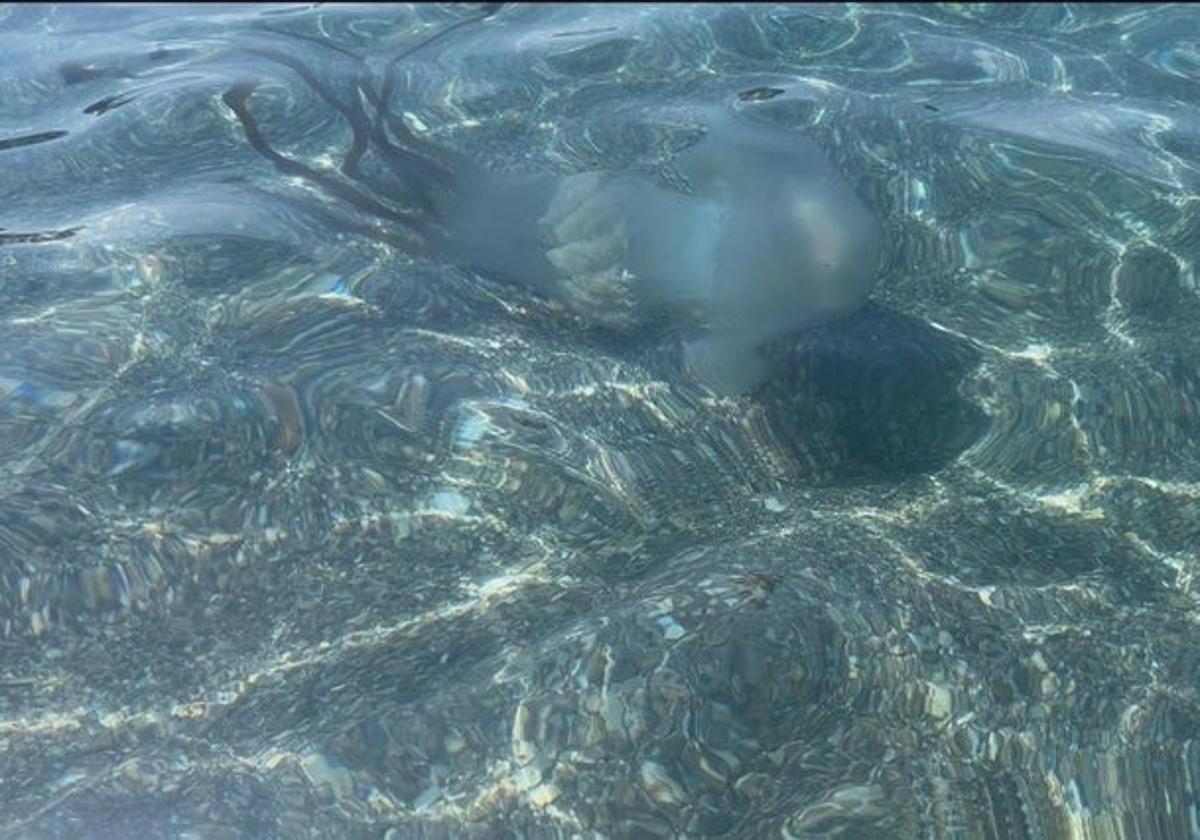Giant jellyfish appears on Salobreña beach
Experts recommend washing a jellyfish sting with seawater, not fresh water
C. Á.
Friday, 15 August 2025, 18:04
One of the biggest fears for many bathers when the summer arrives is getting to the beach and finding the sea full of jellyfish. Their presence makes many unwilling to set foot in the water for fear of their irritating stings. If the jellyfish is large, the fear is even greater.
That is what happened on Wednesday on the coast of Granada province, when bathers at the Charca beach in Salobreña were visited by a large jellyfish around 1.30pm. One of the witnesses shared the images on his X account (@IZAN092). "It approached the shore for a few minutes and then moved away again," he said, claiming that the jellyfish was around 150cm, with "very dark purple tentacles and a very wide head".
According to the Aula del Mar, the jellyfish in question is a Rhizostoma luteum - a species that is not one of the most common in the area but which "appears sporadically". It is not dangerous, although "its sting causes irritation which can be more or less serious depending on the sensitivity of the person and the degree of the sting". Its large size makes it more dangerous. "You have to consider that they can weigh up to 40kg and that's a lot of toxins all at once," Aula del Mar sources said.
Therefore, "it is better not to approach or attempt to remove it", as the tentacles can detach and remain active away from the body.
What to do if you get stung by a jellyfish? "First lesson: never use fresh water because you will encourage the remains of the animal on your skin to release more stinging liquid. Wash the area with seawater and, if you see any tentacles, try to remove them, ideally with tweezers, but if you don't have them, you can use something that is plastic (a debit or credit card, for example)."
"Second lesson: never rub or scratch the wound, neither with towels nor with your hands, as this will make it worse. Disinfect the lesions with an antiseptic such as Betadine. If it hurts or itches, you can take oral antihistamines or an anti-inflammatory medicine," says Dr Lucía Galán, popular on social media with her account 'Lucía, mi pediatra'.

Comentar es una ventaja exclusiva para registrados
¿Ya eres registrado?
Inicia sesiónNecesitas ser suscriptor para poder responder.
Necesitas ser suscriptor para poder votar.